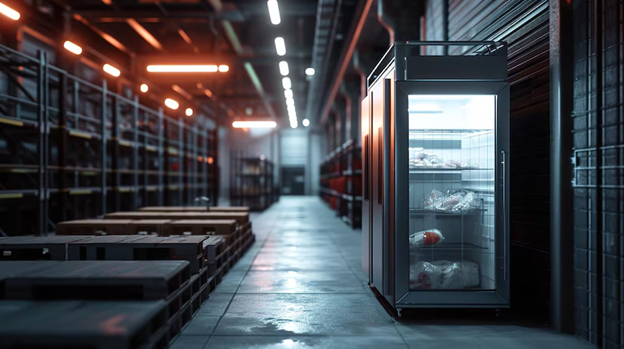Common Issues with Commercial Refrigeration and How to Prevent Them

Commercial refrigeration systems are the backbone of many businesses, ensuring food safety and product quality. However, even the most robust systems can encounter problems. Being aware of common issues and taking preventive measures can minimize downtime and costly repairs. This article explores common problems with commercial refrigeration systems and offers tips to prevent them, ensuring your equipment runs smoothly and efficiently.
Temperature Fluctuations
Maintaining consistent and optimal temperatures is crucial for commercial refrigeration systems. Deviations from the desired temperature range can lead to spoilage, product quality issues, and even health code violations. Here are some causes of temperature fluctuations:
- Faulty Thermostat: A malfunctioning thermostat can misread the temperature or fail to regulate it properly. Regular preventative maintenance by a qualified technician can identify and address thermostat issues before they cause problems.
- Dirty Condenser Coils: Condenser coils dissipate heat from the system. Dust, dirt, and debris buildup on the coils can impede airflow and reduce heat transfer, leading to rising temperatures inside the unit. Regular cleaning of the condenser coils is essential for optimal performance.
- Door Gasket Issues: Faulty or worn-out door gaskets allow cold air to escape and warm air to enter the unit, causing temperature fluctuations. Inspecting and replacing door gaskets as needed is vital for maintaining proper temperature control.
Additional Issues and Preventive Measures
While temperature control is paramount, other issues can also affect commercial refrigeration system repair needs:
- Defrost System Malfunction: Frost buildup on evaporator coils can reduce efficiency and cooling capacity. A malfunctioning defrost system can lead to excessive ice accumulation, impacting performance. Regular defrost cycle checks and cleaning the evaporator coils can help prevent this.
- Refrigerant Leaks: Refrigerant leaks can significantly reduce cooling capacity. Regular leak checks by a qualified technician are crucial for early detection and repair to minimize refrigerant loss and system inefficiency.
- Improper Loading Practices: Overloading the refrigeration unit or blocking airflow vents can hinder cold air circulation and strain the system. Following proper loading guidelines ensures efficient operation. In metal building constructions, where insulation is crucial for temperature control, pay close attention to maintaining proper air circulation around the refrigeration unit.
Maintaining Optimal Performance
A proactive approach is key to preventing commercial refrigeration system repair issues and ensuring long-term system health:
- Regular Preventative Maintenance: Schedule regular maintenance checkups with a qualified technician. These checkups can identify potential problems early on, preventing them from escalating into major repairs.
- Staff Training: Train your staff on proper loading and unloading procedures to prevent overloading and airflow obstruction. Educate them on recognizing signs of potential issues, like unusual noises or excessive condensation.
- Cleaning and Maintenance: Clean condenser coils regularly to maintain proper airflow. Inspect door gaskets for wear and tear and replace them as needed. Schedule professional cleaning of the evaporator coils periodically.
- Monitor System Performance: Monitor your system’s performance regularly, paying attention to temperature readings and any unusual noises or vibrations. Early detection of potential problems allows for prompt corrective action.
Conclusion
Commercial refrigeration systems are vital for many businesses. By understanding common issues, implementing preventive measures, and scheduling regular maintenance, you can minimize downtime, ensure food safety and product quality, and extend the lifespan of your valuable equipment. With a proactive approach, you can keep your cool with confidence, knowing your commercial refrigeration system is operating efficiently and reliably.

